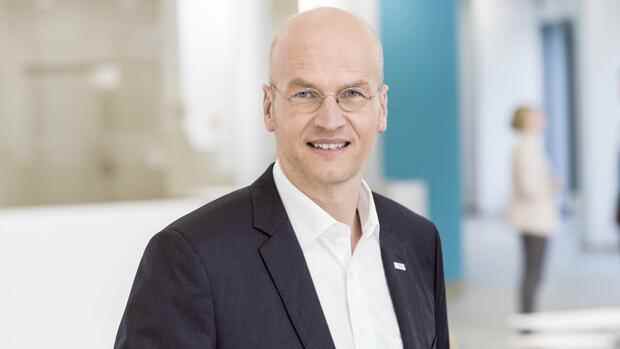Stuttgart Former Bosch top manager Harald Kröger reappears in his Stuttgart district. As of January 1, he will become a member of the supervisory board of the US start-up Sima.ai, as the company announced on Thursday. In addition, the 55-year-old is to set up a location in the state capital as President Automotive and become a door opener in the German auto industry for the Californians.
The industrial engineer and Stanford graduate will be involved in a position that is particularly sensitive for suppliers. Sima.ai is still little known in this country, but deals with new chips for artificial intelligence (AI), machine learning and the training of so-called neural networks.
“The company has finished developing superior chips and software, is now going into series production and can also become the game changer for automotive suppliers,” says Kröger. The AI chip produced by the world’s largest contract manufacturer TSMC in Taiwan masters every neural network and AI framework and can therefore also be integrated into any electronic and sensor environment, says Kröger. “That’s exactly what the auto industry needs right now.”
The US company, which is currently valued at around one billion dollars, was founded by Krishna Rangasayee in San José in 2018 and now employs 150 specialists. The AI chip platform can also be used in robotics, drones and healthcare applications.
Top jobs of the day
Find the best jobs now and
be notified by email.
The so-called edge solution should be able to control cars more safely and conveniently, for example – directly in the vehicle, independent of data streams via the cloud.
Dell and Fidelity are invested in Sima.ai
The Californians just finished another round of funding. Financiers include Fidelity Investments, Amplify Partners and Dell Technologies Capital.
In fact, Sima.ai’s technology can be particularly important for automotive suppliers. Because a merciless race is currently raging for digital supremacy in future robot cars. For autonomous driving functions, Mercedes and BMW rely on the US giants Nvidia or Qualcomm with close cooperation.
If the combination of German premium manufacturers and US tech groups is faster and better in software and hardware development, the chances of the major automotive suppliers Bosch, Continental and ZF dwindling to retain their traditionally strong position in the industry in the digital future of the car.
The Bosch Group, which has entered into a close cooperation with Volkswagen, is under particularly high pressure. “As customers, we primarily focus on the large suppliers,” explains Kröger.
>> Read also: Distribution battle in the car industry – suppliers are demanding cost sharing from car manufacturers
“Sima.ai aren’t the only ones in Silicon Valley who are trying to develop more powerful AI chips,” says auto professor Stefan Bratzel from the Center of Automotive Management (CAM). The fact that Kröger is getting involved here is a strong signal to the industry.
Over 25 years of experience at Mercedes and Bosch
The ex-Bosch manager knows the entire industry very well: the native of Münster worked for over 20 years in the Daimler group, which is now called Mercedes-Benz. He sat on the Tesla supervisory board for the premium manufacturer when the Swabians were still involved in the electric pioneer. At Bosch, Kröger set up the digital development unit Cross-Domain Computing Solutions with 17,000 employees. He also drove the expansion of the semiconductor business.
However, after Stefan Hartung had moved to the top of the Bosch board at the beginning of the year, Kröger left the foundation group after only five years. He became a member of the supervisory board at the US electric car manufacturer Rivian. Now he wants to cause a sensation in the industry again. According to information from advisory circles, Kröger was also in talks for the top positions at ZF, Mahle and Knorr-Bremse.
However, Kröger finds his current task much more exciting because the American technology should enable the breakthrough of artificial intelligence in cars. The manager promises things that should also be of interest to Bosch: “The chip enables the use of artificial intelligence in driver assistance systems on a whole new level,” he says.
Kröger advertises that the data from cameras or lidar could be processed at ten times the speed of conventional AI chips. There are also applications that are a hundred times faster, and with significantly reduced power consumption. This will result in a clearly noticeable increase in the range of electric cars with high-quality assistance systems in the future.
Kröger will often meet his ex-colleagues again in the future. “The relationship is still very good and absolutely relaxed,” he says.
More: Ex-Daimler manager Harald Kröger is leaving Bosch
